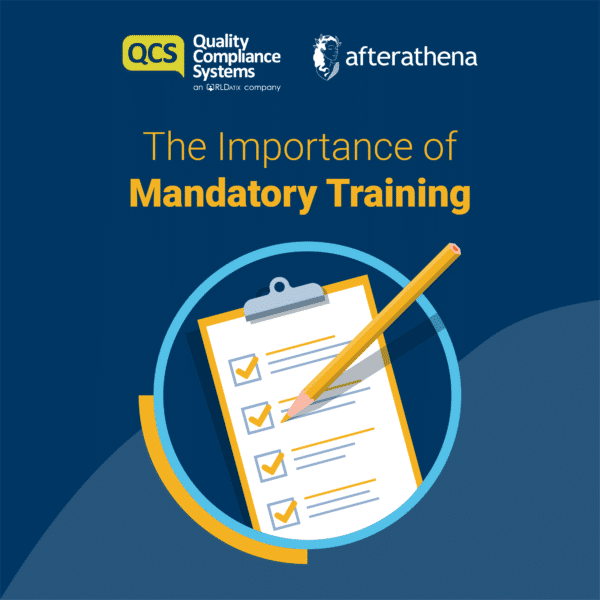Whilst care workers do not need specific qualifications to work in the industry, there is mandatory training that carers are required to undertake (dependant on their role and responsibilities) before they can work in the profession. Once care staff have completed their mandatory training, it is vital that they are given sufficient learning opportunities and refresher training throughout their employment.
The main subjects recognised as the most common mandatory training for care workers are as follows:
- Health and Safety – Statutory requirement (Health and Safety at Work etc Act 1974)
- Fire Safety – Statutory requirement (Health and Safety at Work etc Act 1974) and Regulatory Reform (Fire Safety) Order 2005
- Equality, Diversity and Human Rights – Human Rights Act 1998 and Equality Act 2010
- Infection, Prevention and Control – Health and Social Care Act 2008, Code of Practice on the Prevention and Control of Infection and Related Guidance (Dec 2010)
- Manual Handling – Manual Handling Operations Regulations 1992, Management of Health and Safety at Work Regulations 1999
- Safeguarding Adults – CQC
There may be additional mandatory training requirements depending on the employee’s role, such as food hygiene and medication management.
Whilst there is not a single list of mandatory courses which would apply to every care provider, training is generally defined as mandatory if:
- It falls into a statutory requirement
- All staff across the organisation require the training
- It’s a regulatory or local authority requirement
If a care provider cannot give satisfactory evidence that they have complied with the regulatory requirements to deliver training, the CQC has the power to take action including refusing the registration of the care provider.
Keeping up with mandatory training in the care sector is crucial for several reasons:-
- Quality care
Mandatory training helps ensure that caregivers have the necessary skills and knowledge to provide high-quality care which is well-being and safety of the individuals receiving care.
- Compliance
Staying up-to-date with mandatory training will assist in ensuring care providers are legally compliant and will prevent potential legal issues or sanctions. Additionally, it shows a commitment to providing the best possible care and meeting the standards set by regulatory bodies.
- Safety and Risk Management
Regular training equips caregivers to handle a variety of scenarios safely and they are better equipped to assess and manage risks related to health and safety, infection control, medication administration, and other critical aspects of care provision.
- Professional Development
Continual training allows caregivers to provide care based on the most recent evidence and guidelines. Additionally, it contributes to caregivers professional development by enhancing their skills and fostering a culture of continuous improvement within the care sector and has the ability to contribute to staff satisfaction and engagement.
- Communication
Enhanced communication skills contribute to better relationships between caregivers, service users, and their families, leading to improved overall care experiences.
- Ethical and Cultural Awareness
Regular training can be used to bring ethical and cultural considerations into practice and can assist carers in navigating complex situations with sensitivity and respect.
The importance of specialist training
Some care needs can be more difficult to meet, for example, if the service user requires a higher level of care. Many care providers are now opting to deliver specialist services to expand their offering, such as dementia care, mental health, or visual and hearing impairment care.
Providing staff with additional training to ensure they have the skills and knowledge to address these requirements is critical. Care providers need to ensure that they have a clear understanding of their specialist training requirements, corresponding to their care offering, helping to establish a safe and secure environment for their service users.
Carrying out a training needs analysis
To help care providers understand their training and awareness needs, carrying out a “training needs analysis” is recommended.
- A training needs analysis can:
- Assess the training needs for staff
- Consider where improvements are required by considering feedback from service users, family members and management
- Plan both financial and human resources needed to deliver training
- Identify and address potential gaps in the current learning and development plan
- Determine the frequency required of training
Keeping the training matrix up to date
Many care providers are required by the CQC to put in place a training matrix, to identify all training that will be provided for all roles within the service. The matrix should include mandatory training and should show the frequency of the training and how it will be delivered.
This document can be used to monitor staff progress, identify competency gaps and ensure knowledge is up to date. In turn, this should improve service quality, workplace safety, and staff engagement and retention.
The training matrix can also help to plan an effective training schedule to allow the learning and development budget to be used more efficiently, rather than offering blanket training across the business.
A training matrix is not just a means to log staff training courses, it can also be used by organisations to sculpt a business plan by identifying training requirements. Overall, a training matrix can help a care provider to create a solid training plan, which allows employees to gain new skills and ultimately progress the business.






